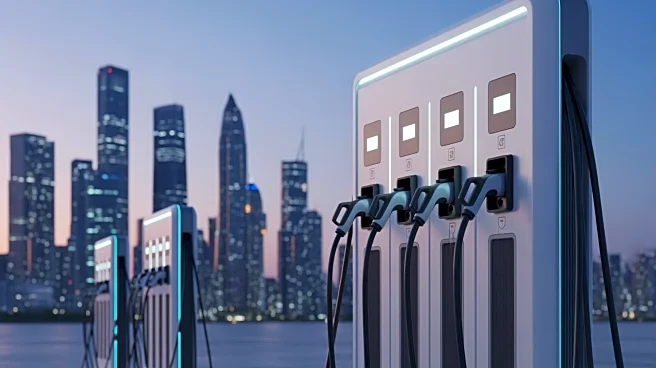What's Happening?
Electric vehicle manufacturer Rivian is set to lay off approximately 600 employees, representing about 4% of its workforce. This decision follows a previous layoff of 1.5% of its workforce, primarily affecting
the commercial team. The layoffs are part of Rivian's strategy to improve operational efficiency as it prepares for the launch of its R2 model in 2026. The company is facing challenges due to recent changes in U.S. government policies that ended EV consumer tax incentives on September 30, which are expected to negatively impact electric vehicle sales. Rivian's R1S and R1T models only qualified for partial incentives, and the company is under pressure to reduce costs ahead of the R2's launch.
Why It's Important?
The layoffs at Rivian highlight the broader challenges faced by the electric vehicle industry in the U.S., particularly in light of changing government policies. The end of EV consumer tax incentives could lead to decreased sales, affecting not only Rivian but other manufacturers as well. This situation underscores the importance of operational efficiency and cost management for EV companies as they navigate a shifting regulatory landscape. Rivian's efforts to streamline operations and focus on the upcoming R2 model are crucial for its competitiveness and long-term viability in the market.
What's Next?
Rivian is expected to continue implementing cost-saving measures as it prepares for the R2 model launch. The company may face further scrutiny from investors and stakeholders regarding its financial performance and strategic direction. Additionally, the broader EV industry will likely advocate for policy changes to support growth and innovation, potentially influencing future government decisions on tax incentives and environmental regulations.









